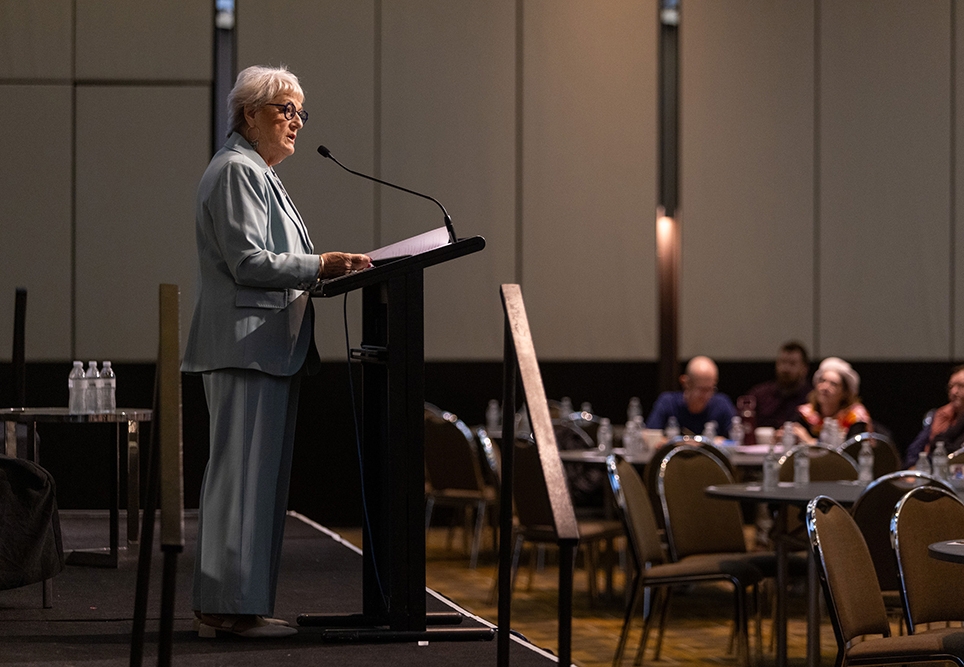“I see a large part of my role is to help health workers be realistic and to have sensible expectations,” Kirsty says, reflecting on her role facilitating CRANAplus’ Remote Emergency Care, Advanced Life Support and Paediatric Emergency Care courses.
“When I first went remote I had no idea. I signed up with an agency and thought I could do everything that would come to me. ‘You might find it a bit different’ I was told. This was a major understatement!”
Grounded in real life
“With CRANAplus courses, I want to help people know what it is they are going out to,” Kirsty says.
“People may have an idea that it is romantic, that they are going to change the world. That’s not realistic. It can be a slog and, for most of the time, the work is mainly primary care with issues such as diabetes and health checks – and then there’s an emergency, a car accident or a heart attack, spearings in fights or a partial evacuation of islands in the path of cyclones.
“You’re pulled away from the day-to-day work and you don’t have time for the preventative side of health care. You have to be prepared for anything and everything.
“The mother brings the child in day after day – and it could be a few days before the signs are obvious.”
Kirsty points out that the opportunity during the CRANAplus courses for participants to share their own experiences in remote communities is a crucial part of preparing health workers for the situations they may face.
“That’s the beauty of these courses, everyone has their own experiences, and we can learn from each other,” she says.
“In a trauma session – a car accident for example – participants will tell you their story, what they had to deal with and how they handled it.
“And then there are the occasions when you’ll get a report from a participant after they leave. They’ll perhaps tell you they came across someone having a heart attack – and each one will say ‘thank goodness I’d done the course and was prepared’.”


From Australia to Africa and back again
Kirsty’s initial move to remote health was part of her plan to work with Médecins Sans Frontières (MSF). In 2004 she went with MSF to Darfur in Sudan.
“It was for three months – and felt like three years,” says Kirsty.
Much of the work was with malnourished children. Kirsty was involved in programs including a feeding centre where mothers brought in children to be weighed and treated, and to receive a ration of food. In another program, mothers would walk for two to three days to come to a ‘blanket feeding’ to receive oil and flour to help feed their children.
“When I returned to Australia, I thought Indigenous Australia – unfortunately – is in just as much need. It’s a different need but still demanding and challenging,” says Kirsty.
This saw her start working in Wadeye in the NT.
“I worked there for years and loved it. The people are lovely and the friendships you make with people you work with are totally different from working in a city. I learned a lot about kids very quickly and loved working with them.”
Kirsty has also worked in communities such as Tennant Creek, Lightning Ridge and Jabiru.
She also volunteers with Pangea Global Health Education in Malawi in Southern Africa, and with the Australian Resuscitation Council teaching an Advanced Life Support course.
With her training in intensive care and mid-wifery, Kirsty was sought out to become a CRANAplus facilitator in 2013, after she had been a participant herself in a couple of courses.





“I like to see the participants open their minds, understand that an isolated clinic is not going to have all the equipment they are used to; realise they have to do more reading before they go remote, finding out more about diabetes, for example, and other illnesses, such as rheumatic fever and rheumatic heart disease – medical situations that are common in remote settings and that you will not see in cities.”
Paediatrics is one of Kirsty’s strengths and one of the skills she is keen to impart through CRANAplus courses is the need to be alert for signs of illness.
“Health workers in remote situations need to have the guidelines, to make sure they don’t miss a sign or an important step in the procedure,” she says.
“A child may be playing and look fine but I can see by looking at their chest, the child is breathing too fast and there could be a respiratory problem. If you’re going to work in remote, you need to look for and recognise the signs.
“Often it’s obvious to the mother that there’s an issue, but not the nurse. The mother knows something is different, but the signs may not present themselves at the clinic.




